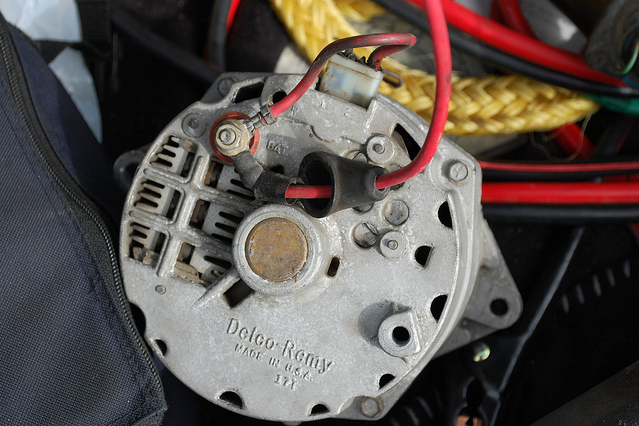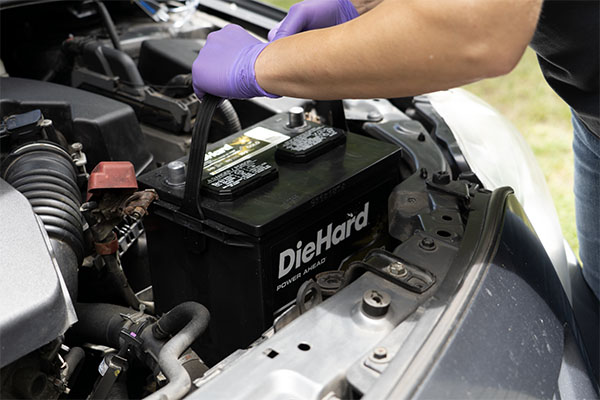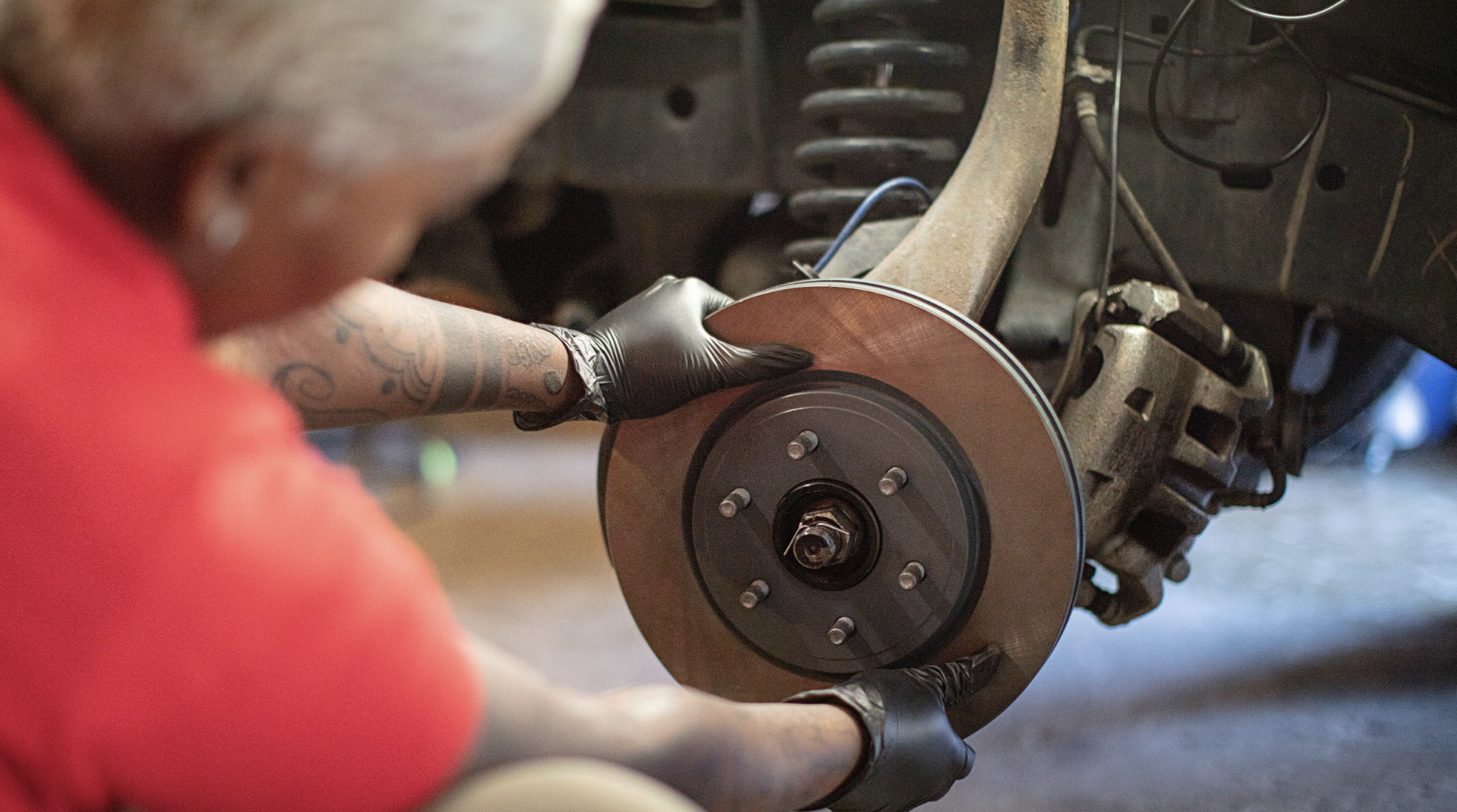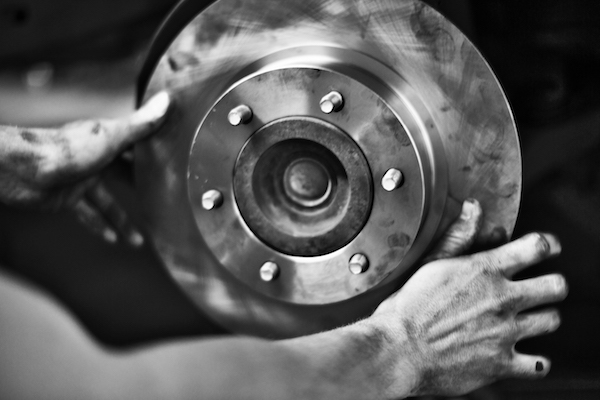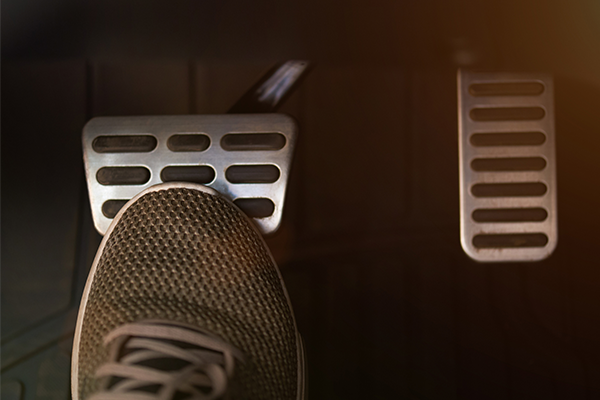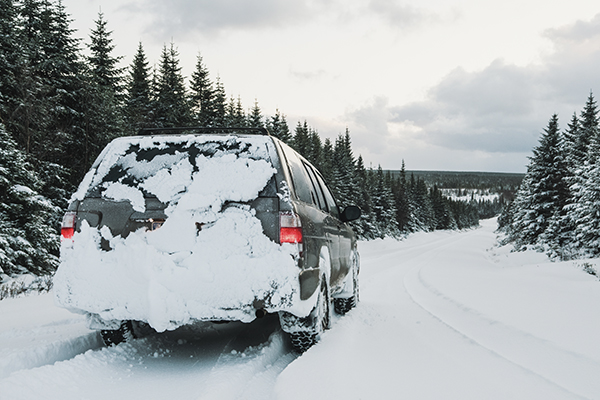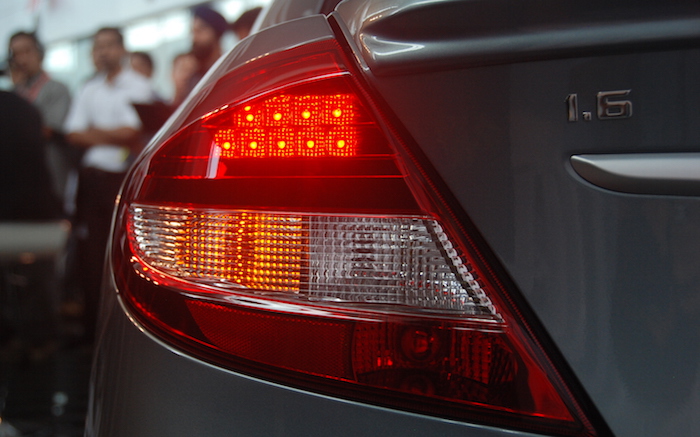If you're shopping for new brakes, you might have already looked at brake pads and discovered that they're quite affordable. Then you found out you need new brake rotors. How much is that going to cost? Depending on several factors, brake rotors can either be very affordable or extremely expensive. Let's get into the cost of brake rotors so you can get exactly what you need.

Brake rotors | Lex Ger, Pexels
How Much Do New Brake Rotors Cost?
There are many variables involved in brake rotor prices, but generally, you can expect to pay $150 to $300 per axle for new rotors. If you're having a professional mechanic handle replacement, add approximately $150 to $250 to that figure. Looking through Advance's massive selection of brake rotors, you'll notice prices average around $75 each, with dozens of name-brand options under $30 each. This task isn't hard, and if you're willing to change brake rotors yourself, you can save a good chunk of change.
Why such a massive difference in prices of brake rotors? This is mainly due to size and options, but here's the full breakdown.
- Size – A Chevy Spark has 9.3-inch brake rotors, while the Corvette Z06 has optional 15.7-inch rotors. The larger diameter and thickness of the rotor requires more material to produce each rotor.
- Front or rear – This is again likely a size difference, as front brake rotors do most of the work in stopping a vehicle and are larger in diameter than rear disc brakes. More material equals more cost.
- Rotor material – That Spark and Z06 above have different brake rotor materials. The Spark has cast iron rotors, like many vehicles on the road. They are durable and quite affordable. Stepping it up in performance and price is steel rotors, followed by aluminum, then carbon-ceramic rotors.
- Corrosion resistance – If you regularly drive through harsh winter conditions, look for brake rotors with corrosion protection. Electrophoretic zinc plating prevents that gross surface rust and helps the rotors last longer. Manufacturers offer protection through painted or powder-coated surfaces as well. Carquest Premium painted rotors are a popular, durable and affordable option, and Frontline rotors are an excellent choice for severe duty.
- Performance rotors - These rotors are vented, drilled and/or slotted, options that increase brake heat dissipation, making them attractive for performance and towing vehicles. The extra CNC machining at the factory does cost a little more.
- Popular brand name – Why do some shoes cost $30 and others in the same style cost $300? It's a similar sales concept with brake rotor prices.
How Often do Brake Rotors Need to be Replaced?
Let's pretend this next part is highlighted in red: always refer to your owner's manual for the proper service schedule. Follow those guidelines for the best advice for your vehicle.
With that said, it's likely you will have to change out your brake rotors around 50,000 to 70,000 miles. This again depends on several factors. Fleet and emergency vehicles, severe service schedules and rideshare vehicles will likely need brake rotor replacement at earlier intervals. An easy way to remember this is to replace your rotors every time you replace your brake pads for maximum braking performance.
Signs You Need New Brake Rotors
Unsure if you need new brake rotors? There are a few different signs that your rotors are due for replacement, but they are distinct from worn-out brake pads. Have a look for these common signs of worn-out brake rotors:
- Pulsing in brake pedal – This is due to a warped rotor. When the rotor isn't flat, the brake pad is in contact with some parts of the rotor surface more than others, creating a pulsing sensation in the pedal that slows with vehicle speed.
- Squealing or grinding sound – Yes, just like worn-out brake pads, worn-out brake rotors can give that awful squeal when you hit the brakes. Unfortunately, the sound is too similar to diagnose online, so have your pads and rotors looked at if you hear excessive squealing.
- Cracks or severe rust - If that barn find or auction car has been sitting a few years, it's probably earned a malignant case of rusty rotors. Minor surface rust gets swept off every time you drive, but seriously rusty and pitted rotors need to be replaced. Similarly, a cracked rotor should be replaced immediately. The crack can catch on the brake pad without notice, locking the wheel in place while you're driving.
- Scoring or grooves in the rotor – Sometimes the brake rotors are so worn out you can see it. Have a look behind the wheel and look for deep scratches or grooves on the rotor surface. This means the rotor material has been ground down over time, much like a worn-out tire tread.

Brake rotors | jae park, Pexels
Should You Replace All Four Rotors?
This one causes as much online debate as who is going to win the Super Bowl this year. Some easy advice is to only change all four brake rotors if all four need replacing. If just the front rotors and pads need replacement, and the rear brakes are fine, then only replace the front rotors and pads.
There is some debate here because the rear rotors will likely need replacing eventually as well, and it is easier to replace them all in one go versus coming back for the rear rotors in six months. However, servicing all four brake rotors every time is like replacing all four tires when you only have one flat. Sure, it's overly safe, but it's also wasteful.
Is Brake Rotor Turning an Option?
This legitimate option sounds like a Jay Leno joke, where he might say something like “Why do I need to pay to have my brakes turned? They turn every time I drive!" Brake rotor turning is the process of “reflattening" the surface of the rotor. A professional machines the surface, removing the top 1 or 2mm so the pad and rotor will fit together like new again. This process is worth considering for some, but price check before you decide, as the labor rate for turned rotors could equal the cost of new replacement brake rotors.
Is brake turning an option if your brake rotors are worn out? Like many things in life, the answer here is: it depends.
Some rotors are too worn to turn, with little material left to allow machining more off the rotor surface. In that case, the rotors need to be replaced. Similarly, overheating rotors causes them to warp, and if you have warped rotors turned until they are flat again, the decrease in the material will cause an even faster overheat condition, quickly resulting in warped rotors again and wasted cash.
Have any questions about brake rotors? Do you change them out every time or have them turned? Let us know in the comments below.

